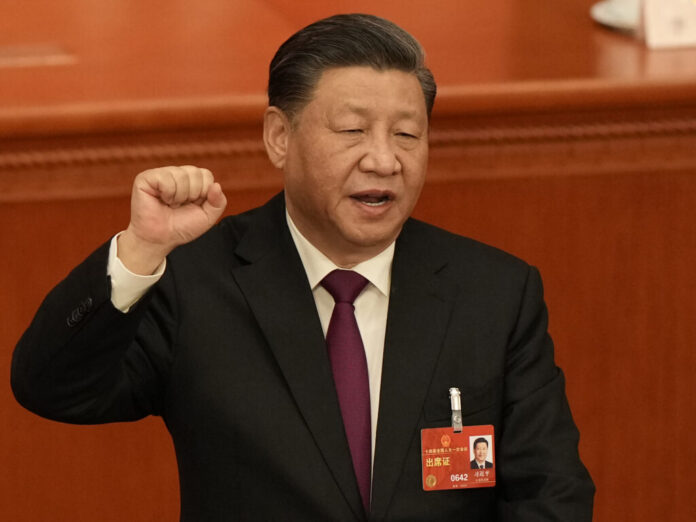Chinese ruler Xi Jinping says he si preparing China for a war. At the annual meeting of China’s parliament and its top political advisory body, Xi made the theme one of “war readiness” through four separate speeches.
In one of those speeches, he rallied his troops and told his generals to “dare to fight.”
According to a report by Foreign Affairs, his government also announced a 7.2 percent increase in China’s defense budget, which has doubled over the last decade, as well as plans to make the country less dependent on foreign grain imports. And in recent months, Beijing has unveiled new military readiness laws, new air-raid shelters in cities across the strait from Taiwan, and new “National Defense Mobilization” offices countrywide.
China has been slowly increasing its war propaganda, alongside the United States, which is doing the same. Back in October of 2022, Chinse military leaders made lightly veiled jabs at the United States, saying:
In the face of wars that may be imposed on us, we must speak to enemies in a language they understand and use victory to win peace and respect. In the new era, the People’s Army insists on using force to stop fighting. . . . Our army is famous for being good at fighting and having a strong fighting spirit. With millet and rifles, it defeated the Kuomintang army equipped with American equipment. It defeated the world’s number one enemy armed to the teeth on the Korean battlefield and performed mighty and majestic battle dramas that shocked the world and caused ghosts and gods to weep.
In December, Beijing announced a new law that would enable the People’s Liberation Army (PLA) to more easily activate its reserve forces and institutionalize a system for replenishing combat troops in the event of war. Such measures, as the analysts Lyle Goldstein and Nathan Waechter have noted, suggest that Xi may have drawn lessons about military mobilization from Russian President Vladimir Putin’s failures in Ukraine.
What’s really noteworthy, however, is that Xi has singled out the United States as China’s enemy. In his speeches, he described a tyrannical geopolitical landscape, in which he exhorted private businesses to serve China’s military and strategic aims, and reiterated that he sees uniting Taiwan and the mainland as vital to the success of his signature policy to achieve “the great rejuvenation of the Chinese ethnos.”
Taiwan Warns China Could Carry Out A “Sudden Entry” Into Country
War Developments: China Deploys Troops Near Taiwan


